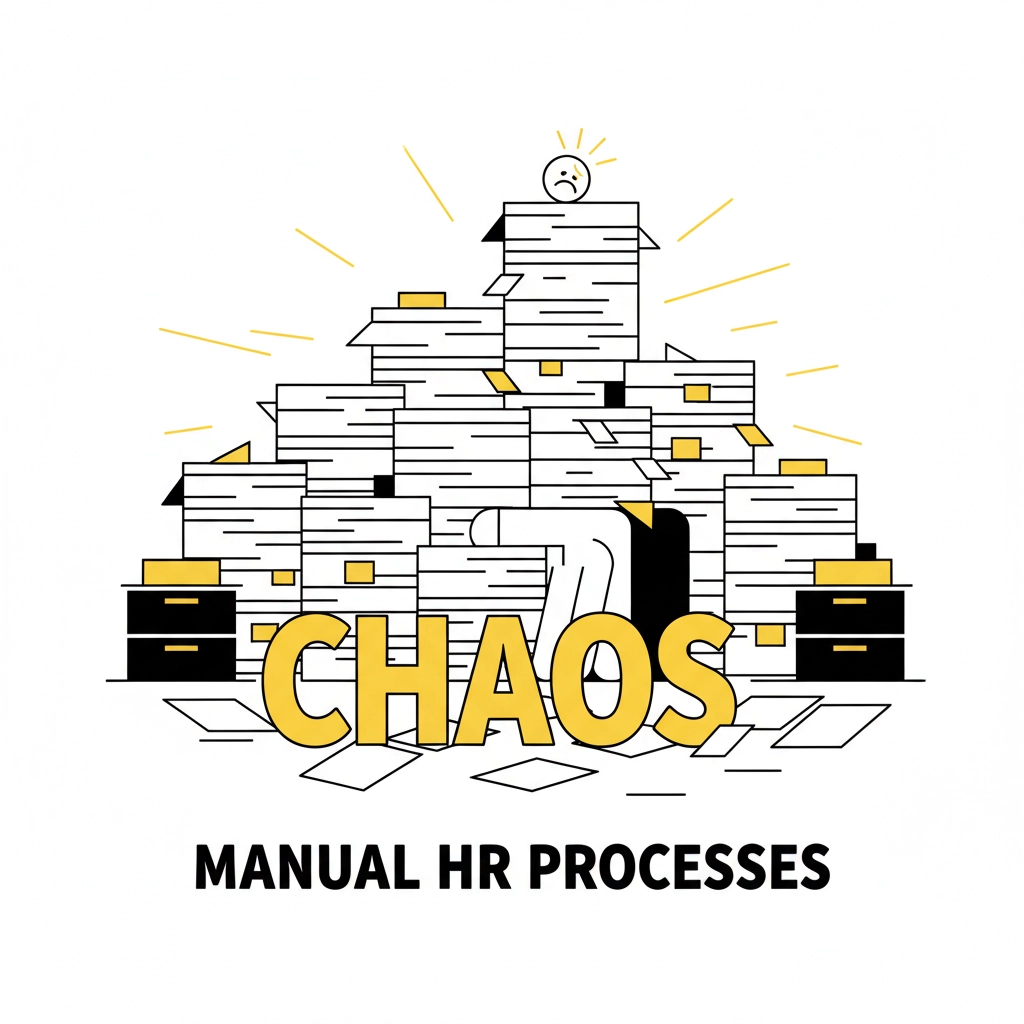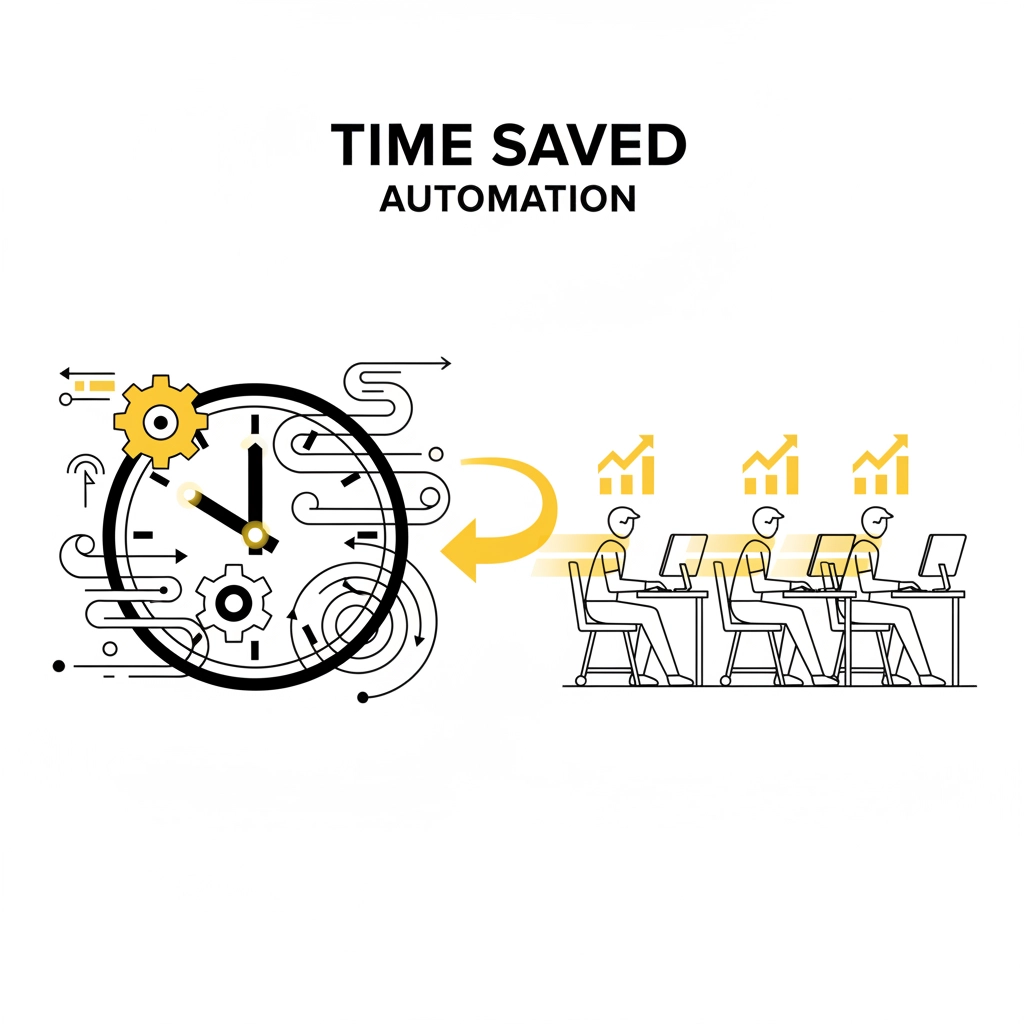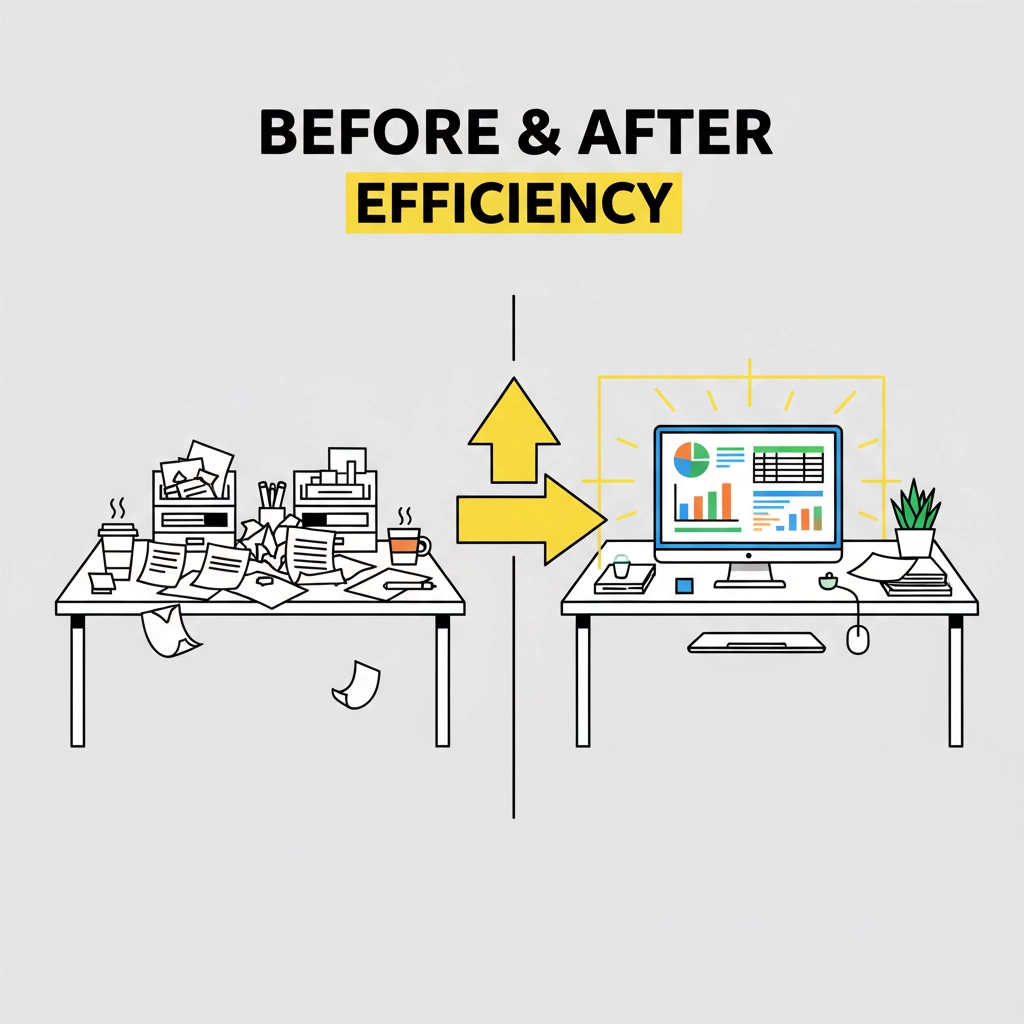Do You Really Need an HRIS? Here is the Truth About HR Technology for Growing Companies
- Justin Hall
- Oct 7, 2025
- 4 min read
Let's cut through the sales pitches and get straight to the point: if your company has more than 15 employees and you're still managing HR with spreadsheets and filing cabinets, you're probably wasting time and money every single day.
The truth about HRIS (Human Resources Information Systems) isn't what most vendors want to tell you. It's not about fancy dashboards or AI-powered analytics (though those can be nice). It's about whether you can afford to keep doing things the hard way when there's a better option sitting right in front of you.
What Actually Happens When You Don't Have an HRIS
Here's the reality check most growing companies need: without an HRIS, you're essentially running a modern business with 1990s tools. Your HR team spends their days playing detective, hunting through different files and systems to answer simple questions like "How many vacation days does Sarah have left?" or "When is Mike's performance review due?"
I've seen companies where HR professionals waste 2-3 hours per day just on data entry and file management. That's not an exaggeration: it's the norm for companies trying to manage growing teams with manual processes.

The bigger problem isn't just inefficiency. When your HR data lives in multiple places, you're creating compliance risks that could cost you thousands in penalties. Employment law changes constantly, and staying compliant requires accurate, up-to-date records that are accessible when you need them.
The Real Benefits (Beyond What Sales Reps Tell You)
You Get Your Time Back
The most immediate impact of implementing an HRIS is time savings. Instead of spending hours updating multiple spreadsheets when someone gets a promotion, you make one change that updates everything automatically. Employee self-service portals mean your HR team stops being interrupted every five minutes for requests like pay stubs or address changes.
Scaling Actually Becomes Possible
Here's something most people don't realize: the administrative burden of adding employees doesn't scale linearly. Your 20th employee creates more than twice the HR work of your 10th employee because of all the interconnected processes and compliance requirements. An HRIS breaks this pattern by automating most of the routine work.
Better Decision Making
When all your employee data lives in one system, you can actually see patterns. Which departments have the highest turnover? What's your average time-to-hire? Are your compensation levels competitive? These insights are impossible to get from spreadsheets, but they're automatic with a proper HRIS.

Compliance Protection
This is probably the most underestimated benefit. Modern HRIS systems help ensure you're compliant with labor laws by maintaining accurate records, automating required reporting, and alerting you to compliance deadlines. The cost of getting this wrong: even once: often exceeds the annual cost of an HRIS system.
When You Definitely Need to Make the Jump
Some companies try to stretch their manual processes way too long. Here are the clear signs that it's time to invest in an HRIS:
Your HR Team Is Drowning in Admin Work If your HR people spend more than half their time on paperwork and data entry instead of strategic work like hiring and employee development, you've waited too long.
You're Making Payroll Mistakes When payroll errors become a regular occurrence, it's not just about the money: it's about employee trust. An HRIS with integrated payroll processing virtually eliminates calculation errors.
Compliance Keeps You Up at Night If you're constantly worried about whether you're meeting legal requirements for record-keeping, reporting, or employee classifications, an HRIS provides the documentation and processes you need to sleep better.

New Hires Take Forever to Get Set Up When onboarding a new employee requires creating accounts in six different systems and filling out forms in triplicate, you need integration. An HRIS streamlines this process dramatically.
The Investment Reality (What It Actually Costs)
Let's talk numbers. A basic HRIS for a 50-employee company typically costs between $3-8 per employee per month. That's $150-400 monthly for a system that saves dozens of hours of work.
Most growing companies discover that their HRIS pays for itself within the first year just through time savings. When you factor in reduced compliance risks, better hiring decisions, and improved employee satisfaction, the ROI becomes a no-brainer.
The key is choosing the right system for your current size and growth trajectory. You don't need enterprise-level functionality if you're a 25-person company, but you also don't want to outgrow your system in six months.
What to Actually Look For
Skip the feature checklists and focus on these practical considerations:
Ease of Use If your team needs three days of training to use the system, it's probably too complex for a growing company. Look for intuitive interfaces that feel familiar.
Integration Capabilities Your HRIS should play nicely with your payroll system, benefits providers, and other tools you're already using. Standalone systems create more problems than they solve.
Scalability Choose a system that can grow with you. Adding users should be simple, and the pricing structure should make sense as you scale.

Support Quality When something goes wrong (and it will), you need responsive, knowledgeable support. This is especially important during implementation and your first few months of use.
Making the Decision
The bottom line is straightforward: if you're spending significant time on manual HR processes, dealing with compliance concerns, or struggling to keep employee information organized, an HRIS isn't a luxury: it's a necessary business tool.
The question isn't whether you can afford to implement an HRIS. It's whether you can afford to keep operating without one. Every day you wait, you're choosing inefficiency over progress, risk over security, and reactive management over strategic growth.
For most growing companies, an HRIS represents the difference between scaling smoothly and hitting operational bottlenecks that slow down everything else. The companies that invest early in proper HR infrastructure are the ones that can focus on growing their business instead of just managing their growing pains.
Ready to explore how an HRIS could transform your HR operations? Contact JHHR to discuss which solution makes sense for your company's size and growth plans.
Comments